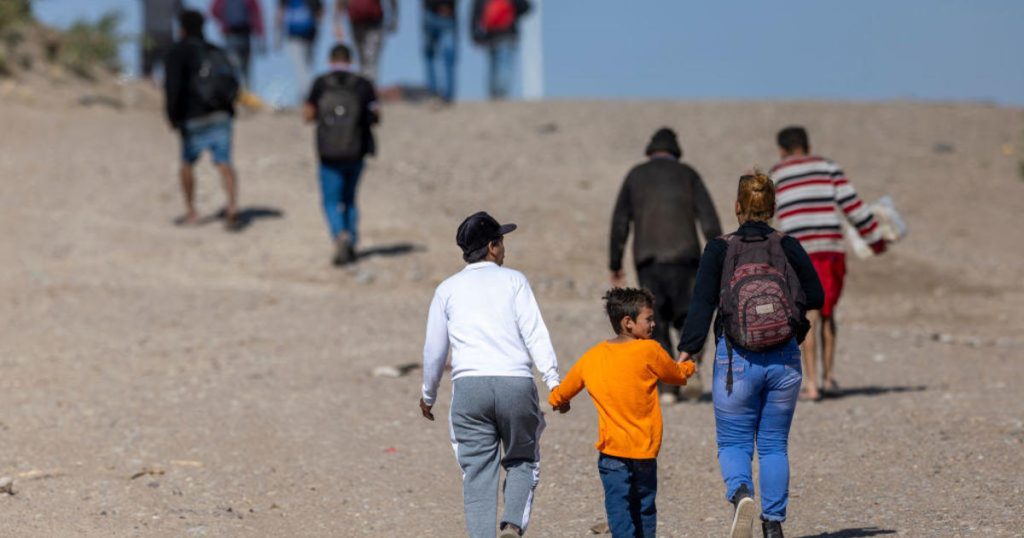The Biden administration has paused a migrant sponsorship policy established to discourage illegal crossings along the U.S.-Mexico border due to concerns about fraud among sponsors. The policy allows up to 30,000 migrants from Cuba, Haiti, Nicaragua, and Venezuela to fly to the U.S. each month if American sponsors agree to support them financially. It was first implemented in late 2022 and expanded in early 2023 to dissuade migrants from crisis-stricken countries from traveling to the southern border. The Department of Homeland Security has halted the issuance of travel documents to applicants while they investigate applications from U.S.-based sponsors.
The pause in the policy was triggered by concerns raised by the fraud detection branch of U.S. Citizenship and Immigration Services regarding a significant number of sponsors applying for multiple migrants. While fraud concerns are related to sponsors in the U.S., not the migrants themselves, reports have suggested that some individuals have been advertising sponsorships online. Applicants must be American citizens, residents, or have legal status in the U.S. DHS has stated that instances of immigration fraud will be referred to the Justice Department for potential criminal prosecution. The department emphasized that there have been no identified issues with the vetting of migrants who are eligible for sponsorship.
Republican Rep. Mark Greene of Tennessee, the chair of the House Homeland Security Committee, expressed concerns about the program, stating that the pause vindicates his initial apprehensions. He called for the immediate termination of the CHNV program, highlighting the potential negative consequences of creating mass-parole programs to avoid political embarrassment or border crisis. Since its inception, the CHNV policy has allowed approximately 520,000 migrants from the designated countries to enter the U.S. through security vetting processes. Arrivals of migrants from these countries to the southern border have dropped significantly since the implementation of specific policies by the Biden administration.
The Biden administration has implemented a policy of returning migrants from Cuba, Haiti, Nicaragua, and Venezuela to Mexico if they enter the U.S. illegally. Republican-led states have contested the CHNV initiative in federal court, arguing that it violates the intent of the humanitarian parole law invoked by the Biden administration. While a federal judge in Texas dismissed the lawsuit earlier this year, the states are appealing that decision. Overall, migrant crossings at the U.S.-Mexico border reached record levels in 2022 and 2023 but have decreased significantly this year, with July recording the lowest level in almost four years. Factors contributing to the drop include a crackdown on asylum by President Biden, extreme summer temperatures, and efforts by Mexico to prevent migrant flows.


